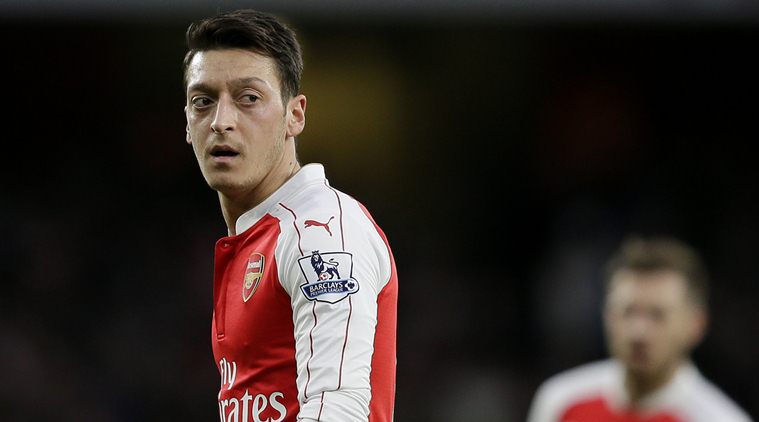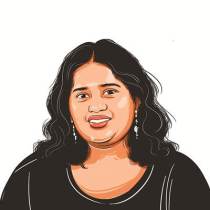Germany’s Özil moment
Footballer’s case points to the country’s failure to address everyday racism.

Özil’s race is a key factor for Germany’s disappointed fans as well as its football federation (DFB) president. (AP Photo)
Mesut Özil, the star German footballer, is a poster child for the successful assimilation of diasporic families at a time when diversity and cultural integration are buzzwords in European policymaking discourse. He was, as it is widely known, heckled by German fans when he recently played for his national team in the World Cup, because of a photograph he posed for with Turkish strongman Recep Erdogan.
Even as France claims to erase the diasporic background of a majority of its victorious team, Özil’s race is a key factor for Germany’s disappointed fans as well as its football federation (DFB) president. The events that led to Özil’s public statement on July 22 as well as the mixed responses it has generated are almost a reply to the French government’s deliberate whitewashing of its own players. As US-based South African comedian Trevor Noah observed after being rebuked for a joke on the topic (“Africa won the World Cup”), European countries are seemingly unable to deal with hyphenated identities the way United States has been. Players from Belgium and France have also noted that their fluid identities literally depend on their performance. The message in all their experiences, taken together, is that success is equated with (white) citizenship. By extension, failure is associated with the place of (family) origin.
One can, however, dispute Noah’s claim that the US allows for citizens from immigrant background to celebrate multiple identities, hyphenated for legibility. Özil dwells considerably on the terms of this dual identity in his statement. Turkey is firmly etched in cultural and kinship terms that he presents as non-negotiable while his German side is clearly expressed in terms of political citizenry. His ideas on good citizenship are community oriented (in donations to charities and to his alma mater) and capitalist (he pays his taxes). In this statement, he is making a case to be perceived as German with no hyphenations, perhaps because his German-ness is currently under attack.
While he stresses that he is not a politician and cannot judge Erdogan, Özil is at the same time acutely aware of the political ramifications of his decision to go public. His Turkish side, the cultural/familial self, is undemocratic in that he appears to not have the option of refusing a photograph with the president of the country his parents came from. His German side, however, is democratic in that he questions the terms on which his citizenship is evaluated. He also appears to give himself the right to challenge German public figures, including the DFB President, on their racism and their inability to uphold multiculturalism. In detailing the racist abuse he and his family members have received, he holds that it is a dangerous precedent for a society when previously hidden racist tendencies are aired due to a mere photograph with Erdogan.
Özil’s two selves, as described in his statement, mirror the political moment in both countries. Turkey is taking its final steps towards absolutism after the recently-held elections where the now infamous photograph served as a publicity stunt. Germany itself is at a crossroads with renewed political turmoil over immigration and border control. With the surging popularity of alt-right Alternative for Germany, the Bavaria-based Christian Social Union threatened to spur an EU crisis in June over border control. Members of The Left (Die Linke) are desperately wooing older working class men with messages on border control while sections of the Social Democrats and Green Party appear to be rethinking their stance on immigration.
Özil may not have been naïve about Turkish politics but what he certainly miscalculated was the precarity of a citizen, albeit a wealthy and famous one, in a country where the lofty ideals of multiculturalism have sought to replace a much-needed dialogue on race.
In another World Cup (2014), two German football fans blackened their face for Germany’s match with Ghana. The backlash across the world was swift but, as with other news stories on blackface campaigns, there was a refusal to engage with the painful history of this practice. If Germans resisted any engagement with race in 2014 or during the so-called refuge crisis in 2015-2016, Özil has now forced the society to confront its racism.
In a recently published book, White Fragility, educator and author Robin DiAngelo dissects the resistance white Americans display towards any conversation on race. Their severely emotional responses are rooted, she writes, in the belief that racism in limited to “intentional acts of racial discrimination committed by immoral individuals”. Lofty claims to equality and a colour-blind world are common tropes in spaces dominated by white progressive Americans but this is hardly the norm for the western world.
Political incorrectness is not infrequently worn as a badge in Germany and conversationalists are not shy to directly and indirectly bring up the Other’s presumed identity. Germans’ ability to see and name race could actually be an opportunity to hold a more productive dialogue on race but the resistance is almost as pronounced, if not more, than it is in the United States. Racism here is certainly perceived as an intentional act and there is no vocabulary to chronicle everyday experiences of race — whether of the person of colour or even of whiteness. Özil’s statement exposes the nation to the existence of that immoral form of racism and forces the country to engage with both race and racism.
The writer is an anthropologist based in Germany.
For all the latest Opinion News, download Indian Express App







































No hay comentarios:
Publicar un comentario